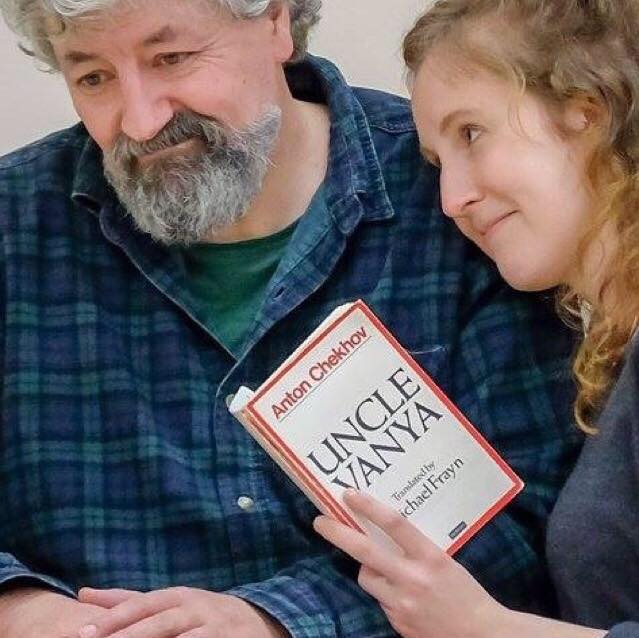The return of an elderly professor and his young wife to their country estate sets in motion the chaos and emotional turmoil at the heart of Chekhov’s Uncle Vanya.
The scene is 19th century Russia but the play is in practice timeless, as director Helen Wilson is keen to point out.
Its universal themes have enshrined it for generations as a poignant tale of unrequited love, change, and the absurdity of life.
York Settlement Players are bringing a fresh adaptation of Chekhov’s great play to the York Theatre Royal studio.
It will be the third Chekhov play Helen Wilson has directed in York, and promises to be a gripping, character-driven adaptation of an old classic.
Forward thinking
Uncle Vanya centres on a family, servants and friends living on an estate in the Ukraine at the end of the 19th century. It follows the chaos brought to the doorstep when Vanya’s brother-in-law, an old professor, and his beautiful young wife return from the city.
Suddenly, the certainty of life is thrown into sharp relief as those living on the estate find themselves falling into unrequited love, questioning their beliefs, and being forced to face up to a bitter reality.
Though the play was written in 1899, director Helen Wilson suggests that Uncle Vanya is “surprisingly forward thinking for its time”.
“One character, Dr Astrov, is a very concerned about deforestation and what this could do to the environment in a hundred or so years’ time – and everyone thinks he’s incredibly odd as he’s vegetarian,” she said.
“We find another reading pamphlets about female emancipation.”
“People are put off by Chekhov because of the long and complicated Russian names”, says Ms Wilson. “In the programme I want to explain fully who everyone is to the audience before the play begins to avoid confusion”.
She insists that audiences need not be Chekhov buffs or experts to enjoy the play, which though set in costume, will incorporate a modern soundtrack for timelessness.
“Wherever you are in history you always feel that things are changing too quickly.”
Absurd moments
[arve url=”https://youtu.be/Zz96TBhldkM” title=”YSCP’s Uncle Vanya” /]
In fact, Ms Wilson even suggests that the play takes on new relevance in our modern age: “As with most of Chekhov’s plays, his characters are constantly on the brink of some kind of change.
“One of the reasons his plays age so well is because that’s a feeling we all know well. Uncle Vanya finds out in the play that he’s been living under a misapprehension all his life.
“I think a lot of people today have lived under the misapprehension that things are quite secure and safe – recent economic and political events have, as in Vanya’s life, thrown doubts on our assumptions.
“I wouldn’t change places with any of them!”
Audiences have often associated Chekhov’s plays with doom and gloom, but the YSP’s adaptation hopes to bring out some of the humour in Uncle Vanya, choosing to dwell on the play’s more absurd moments for effect.
“I definitely wouldn’t want to change places with any of them,” admits Helen. “But I imagine a lot of women who come to see it will identify most with young, pragmatic Sonya.
“Chekhov wrote very fully formed female characters who are extremely emotionally strong. So Chekhov’s gun to my head – I’d switch with Sonya if I had to.”
